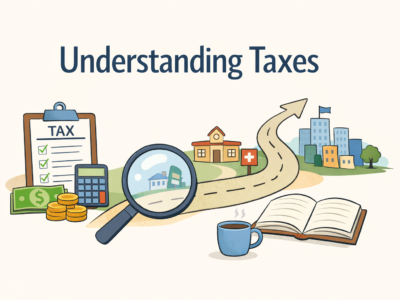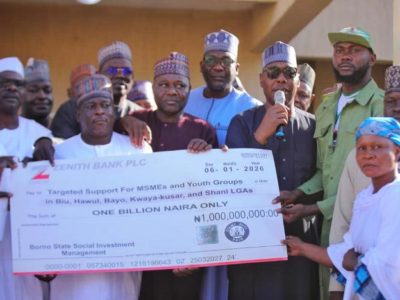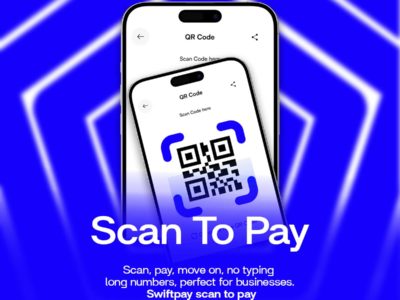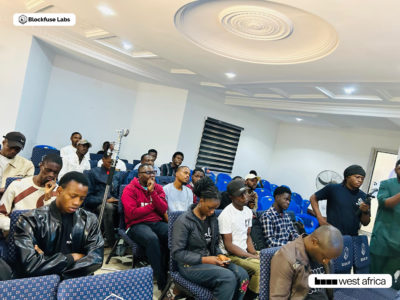By Sonny Aragba-Akpore
In March 2024 Mobile Network Operators (MNOS) lamented losses of revenue when services were negatively impacted as they suffered internet outage due to damage to some fibre optic cables.
RELATED: Fate of Critical National Infrastructure protection
Earlier in 2023 alone, MTN Nigeria suffered more than 6,000 cuts on its fiber cable. The operator relocated 2,500 kilometres of vulnerable fiber cables between 2022 and 2023 at a cost of more than N11bn —enough to build 870 kilometres of new fiber links in areas without coverage.
The menace of fiber cuts
In August 2024, Chief Executive Officer of Airtel Nigeria, Carl Cruz, while speaking during an industry forum, said the telecom company had been recording an average of 1,000 cases of fibre cuts every month. All of these cost money and avoidable losses of revenue.
Both operators which are believed to be dominant service providers suffered a series of setbacks so much that even some of their Mobile Switching Centres (MSCs) and Base Transceiver Stations (BTS) were also affected thus creating negative impact on Quality of Service (QoS).
While they swallowed the bitter pills of trying to resolve the infrastructure issue, some of them have not been able to meet the QoS threshold effectively, as expected by industry regulators, the Nigerian Communications Commission (NCC).
Globacom Limited and 9mobile, though not publicly quoted, have no figures available in the public space on their financial losses but both too have suffered losses in that regard.
QoS and Vandalism by miscreants
Each of the four MNOs has suffered incalculable losses so much that these have affected QoS and while subscribers groan over the poor quality of service and depleting data in the face of unavailable network and where available in poor coverage especially in some areas of the country, the operators appear helpless.
Vandalism by miscreants is another cross many operators bear. There are also frequent instances of official high handedness by certain categories of government officials who are empowered by cruel legislations to go after operators for payments on Right of Way (RoW) fees and illegal taxes not known to any law.And the operators have had to contend with these too.
And so the operators are trapped inescapably between the vandals and government officials. The subscribers suffer in all of these.
In all of these, the subscribers swallow the bitter pills as they are made puns in the vicious cycle of the gods-vandals, none state actors and regimented state and local government officials riding on crooked legislation to fleece the operators.
Revenue losses and burden of high operational expenditures
Apart from frequent harassments operators encounter in the hands of vandals and alleged unscrupulous government officials at state and local council areas across the country, there have been reported cases of revenue losses sustained by the operators through the burden of high operational expenditure.
Some of them have even lost millions of subscribers in the last 20 months so much that these have led to dwindling revenues.
For instance, in the first eight months of 2024, Globacom Nigeria experienced a significant loss of 42 million active subscribers, representing a 73% reduction thus losing its market share by moving from number two to three on the subscriber chart.
Why Globacom’s subscriber decline is worrisome
While the telecommunication sector in Nigeria has shown resilience, Globacom’s subscriber decline is worrisome.
By pioneering per-second billing—unlike the ₦50-per-minute norm—it immediately disrupted the market, forcing rivals to return to the drawing board to rejig their billing templates.
“If per-second billing was a game-changer for the industry, Globacom pulled off another stunt in October 2004 by offering free Subscriber Identification Modules (SIM) cards—at a time competitors were selling theirs for ₦2,000 per SIM card.
Operators recording losses to gains
“This too rocked the market with aggressive price war and inspite of its late market entry status, Globacom backed it with hefty marketing campaigns, signing Nigeria’s biggest celebrities as ambassadors” according to an analyst.
MTN Nigeria reported a N400 billion post-tax loss in 2024, marking a significant financial setback.
But the company bounced back last week when it announced a profit after tax of N133.7 billion for first quarter (Q1) ended March 31, 2025, from a loss of N392.7 billion declared in the first quarter of 2024. MTN announced a total revenue of N1.06 trillion, representing an increase of 40.5 per cent from N752.96 billion in Q1 2024.
The telecommunication giant listed on the Nigerian Exchange Limited (NGX) said it invested N202.4 billion in Q1 2025, a 159 per cent increase year-on-year, to upgrade and expand network infrastructure, enhancing service quality and capacity.
Airtel Africa reported a loss after tax of $89 million for the full year ended March 2024. This loss was primarily attributed to foreign exchange (FX) headwinds in Nigeria and Malawi. Airtel Nigeria’s revenue also fell by 40.34% to $738 million in 2024, mainly due to the devaluation of the Nigerian naira.
Data usage sparks despite telcos’ losses
Despite the revenue decline, data usage per customer in Nigeria increased by 37.2% accounting for 8.4 Gigabyte (GB)per month. Airtel has a subscriber base of 56.6 million, as the second largest operator by numbers.
To mitigate further foreign exchange induced losses, MTN and Airtel cut FX liabilities. MTN Nigeria slashed its outstanding letters of credit (LC) dollar obligations from $416.6 million as of 31 December 2023 to $20.8 million by the end of 2024.
Airtel Africa, on its part, repaid $739 million in foreign currency debt over the last year, reducing its foreign currency debt exposure. Both companies believe that reducing their foreign currency obligations is key to strengthening their financial positions.
9mobile struggling in Intensive Care Unit
With over 10 million of its subscribers lost to other networks out of its 13m subscribers base,and a desperate quest for $3billion loan to stay afloat, 9mobile is clearly in the Intensive Care Unit (ICU) of the telecommunications sector.
Its pathetic situation is almost beyond redemption after it managed to scale through its initial hiccups as a result of over a billion-dollar debt Overhang to a consortium of Nigerian banks.
It survived through the interventions by the NCC and the Central Bank of Nigeria (CBN), which offered a reprieve for new owners to take over.
It rebranded from Etisalat to 9mobile with a lot of promises which later turned out to be mere pipe dreams as the company is now comatose. Its now on the bottom of chart. Its new management led by Obafemi Banigbe is shopping for over $3 billion in investment to rejig its services in the face of internal wrangling of shareholders.
“9mobile is also facing issues from competitors, especially Globacom, as regards its spectrum lease agreement with MTN.”
A telecom analyst explained last week that “the spectrum lease agreement, was framed in the form of infrastructure sharing, where 9mobile could make use of MTN’s wave bands, where it has no coverage, and MTN can also do the same.”
Cushioning losses with tariff hike
But in order to cushion the serial losses sustained by operators, the government approved a tariff hike in March 2025 by about 35% down from the 100% the operators proposed initially.
Industry regulator the NCC, in January this year, approved the request by telecoms operators for tariff adjustments in the telecoms industry. It announced a 50 per cent increase in telecoms tariff.
But the Nigerian Labour Congress (NLC) resisted this and took its protests to the Office of National Security Adviser (ONSA) which called a tripartite meeting of his office, labour and operators after which the tariff was pegged at 35%.
“Telecom operators had requested for 100 per cent hike in telecoms tariff for industry sustainability, which was rejected by different groups of telecoms subscribers, who felt that any increase would impose further hardship on the subscribers.”
The NCC riding on its power under Section 108 of the Nigerian Communications Act, 2003 (NCA) to regulate and approve tariff rates and charges by telecommunications operators, approved tariff adjustment requests by Mobile Network Operators (MNOs) in response to prevailing market conditions.
Will the hike save operators?
The adjustment, capped at a maximum of 50 per cent of current tariffs, though lower than the over 100 per cent requested by network operators, was arrived at, taking into account ongoing industry reforms that will positively influence sustainability.
“These adjustments will remain within the tariff bands stipulated in the 2013 NCC Cost Study, and requests will be reviewed on a case-by-case basis as is the commission’s standard practice for tariff reviews. It will be implemented in strict adherence to the recently issued NCC Guidance on Tariff Simplification, 2024” the NCC said.
But will the adjustment make any difference to the myriads of problems in the industry especially with declining purchasing powers and general apathy of subscribers?
Will the NCC re-examine the financial health of the operators in a wobbling economic environment?
There are far more questions than available answers.
Time alone will tell.






























